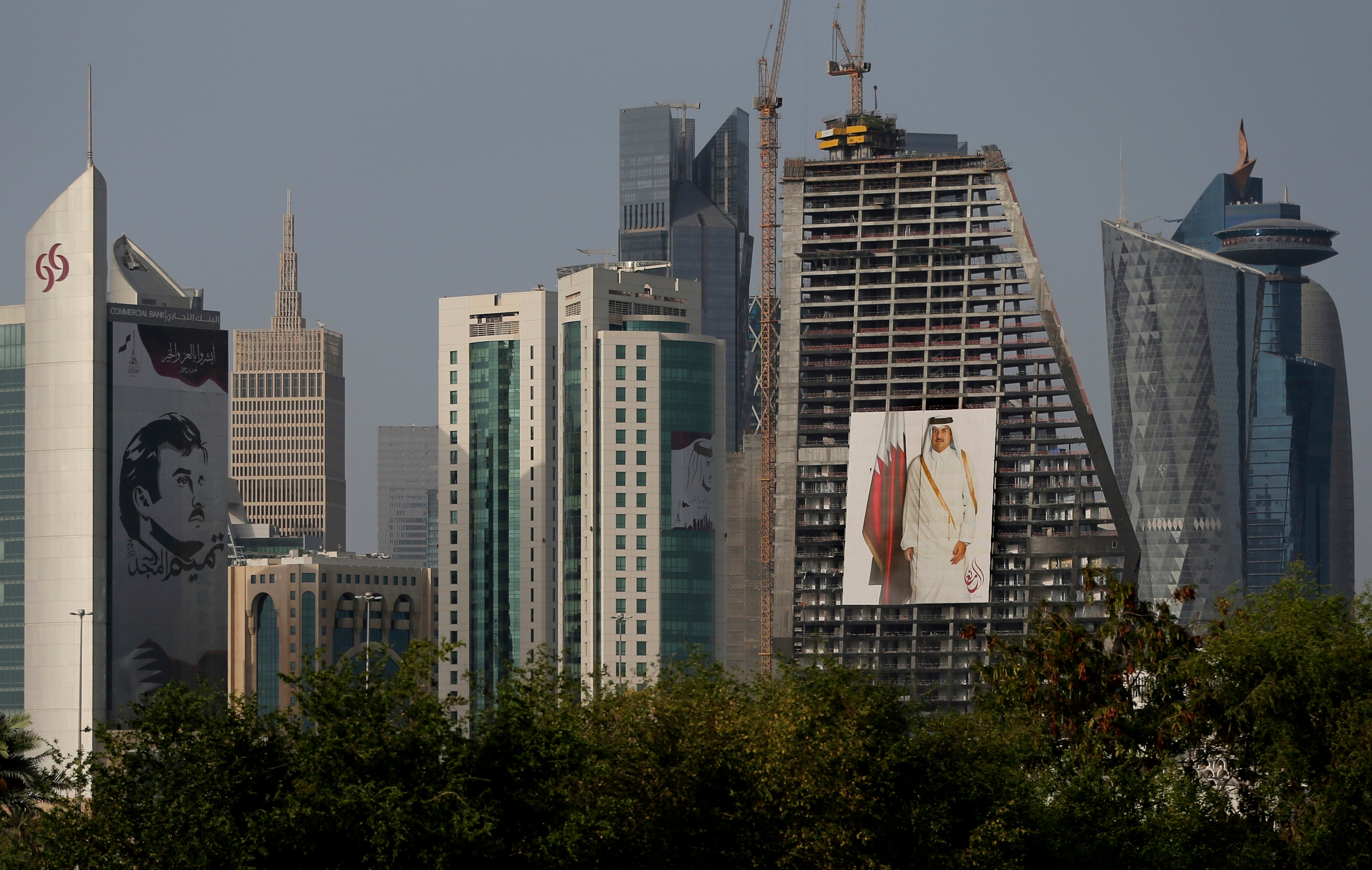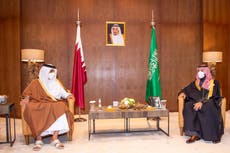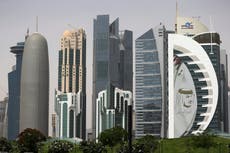UAE says it will restore trade links with Qatar soon but trust will take longer
A deal to end the standoff between the Gulf monarchies was signed earlier this week

Arab countries that boycotted Qatar for nearly four years will resume transport and trade links within a week, an Emirati minister has said – but he warned that restoring diplomatic ties would need more time to rebuild trust.
Qatar’s ruling emir travelled to Saudi Arabia this week for the first time since a regional blockade was enforced against the tiny Gulf state in 2017 over its support for Islamist groups like the Muslim Brotherhood and its ties to Iran.
Sheikh Tamim bin Hamad al-Thani was met with a warm embrace by Saudi’s Crown Prince Mohammed bin Salman before attending the Gulf Cooperation Council summit where a breakthrough agreement healing the bitter rift was signed.
The terms of the deal, brokered by the US and Kuwait, were not made public, but Saudi officials said it would include the restoration of full ties.
However, speaking at a virtual news conference, UAE foreign affairs minister Anwar Gargash said that while the “practical measures of airlines, shipping and trade” could be restarted within a week, a full rapprochement would take time.
He said there was more work to be done before full diplomatic relations could be restarted given conflict over geopolitical issues such as Iran, Turkey and political Islamist groups such as the Muslim Brotherhood that have been designated as terrorist organisations.
“Some issues are easier to fix and some others will take a longer time,” Mr Gargash said, adding that bilateral working groups would try to move those forward. “We have a very good start ... but we have issues with rebuilding trust.”
Saudi Arabia, the UAE, Bahrain and Egypt imposed the political and trade embargo on Qatar – although the UAE still received Qatari gas imports throughout the dispute – over allegations that it supported terrorism and was cosying up to foe Iran. Doha vehemently denied the charges and said the boycott was aimed at curtailing its sovereignty.
While Donald Trump, the US president, was initially accused of inciting the conflict, Washington has more recently sought to end the dispute amid concern it broke an important united front of US regional allies against Iran.
While Donald Trump, the US president, was initially accused of inciting the conflict, Washington has more recently sought to end the disputeconcerned it broke an important united front of US regional allies against Iran.
According to insiders and regional analysts, Saudi Arabia was the driving force behind the deal, as Riyadh hopes the ending of the feud could curry favour with incoming US president Joe Biden, who is expected to take a tougher stance with the kingdom than Mr Trump.
Emirati analysts said that the UAE and Egypt were more reluctant to pursue a full detente with Qatar, as the lack of trust remains high and some of the key demands have not been met.
At the start of the boycott, Doha was issued a 13-point list of ultimatums including closing its flagship broadcaster Al Jazeera, expelling Turkish troops on its soil and dramatically scaling back cooperation with Iran.
Al Jazeera remains operational although it has clearly toned down its caustic criticism of its Gulf neighbours with its documentary channel tweeting unheard-of praise for Riyadh’s urban development, and the beauty of the Abu Dhabi seafront. Other tweets hailed features of former rival Bahrain.
Al Jazeera TV, meanwhile, has also begun hosting Saudi pundits again.
Restored air links to the UAE’s regional aviation hub will be important for Qatar’s hosting of the 2022 World Cup.
Join our commenting forum
Join thought-provoking conversations, follow other Independent readers and see their replies
Comments

Bookmark popover
Removed from bookmarks